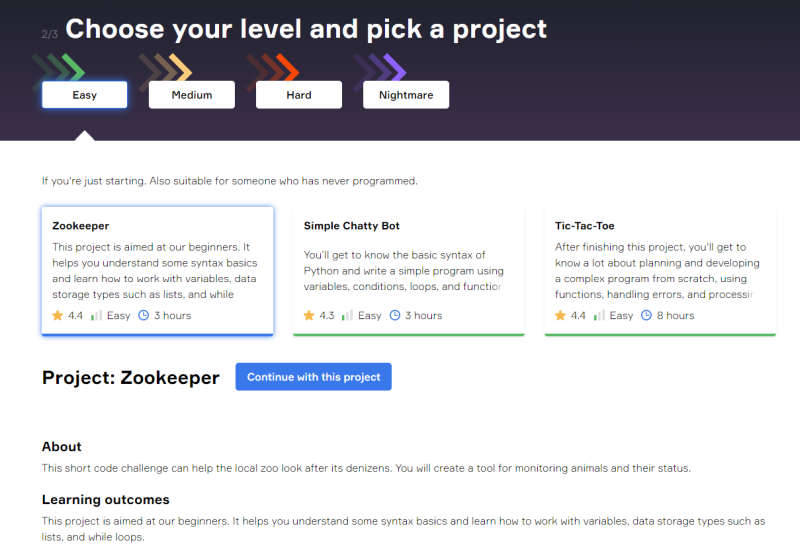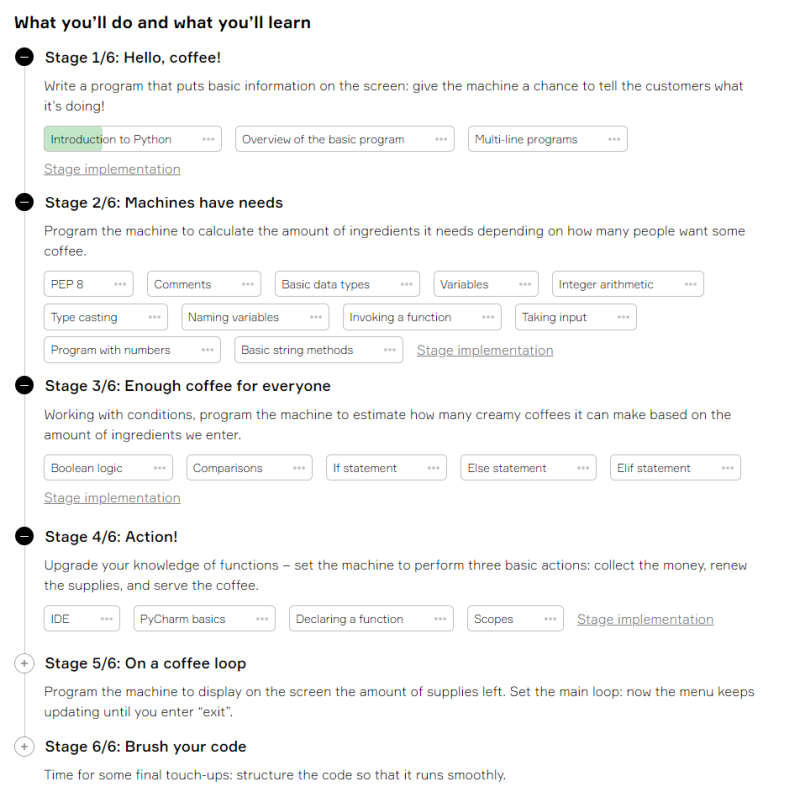| Learn To Code with JetBrains Academy |
| Written by Nikos Vaggalis | |||
| Tuesday, 05 May 2020 | |||
|
With tracks on Java, Kotlin and Python and with many hands-on projects, the new JetBrains Academy is currently free under an Early Access Program. This is an opportunity not to be missed The free EAP offer acts as a promotion of JetBrains deal with the new Hyperskill platform which takes care of the underlying infrastructure, under JetBrain's attempt to capture a share of the growing developer education market. The aim of the platform is to prepare students in their language of choice for junior dev positions. While all you need to get started is a browser, since the code can be run within it, some parts of the service are accessible only via JetBrains IDEs under an educational license; in essence free too.
Each of the three tracks comprises of more than 10 projects and quite a few hours of self-paced material. Although the target level is that of a junior dev, there's grading within that level depending on the student's experience.That is, you might opt to begin with material that is :
As far as the time necessary to complete a full track - if you start from the Easy level allow about 82 hours for Java, 25 for Kotlin, and 34 for Python.
The curriculum is project-based in that you learn the basics of the language not by theory but by doing. As such taking Python as the example its projects, in increasing difficulty, range from the very simple like understanding the syntax basics and learning how to work with variables, data storage types such as lists and while loops, to how HTTP works as well as parsing HTML, to learning how to start a Django project, handle requests, and make templates for HTML pages. Each project is itself subdivided into stages under the philosophy that: stage by stage you'll make the project more and more sophisticated while learning new concepts about programming and software development technologies so that you can create a complex app and at the same time make sure everything works fine. For example the Python project Coffee Machine,comprises of :
The intuition here is that for each stage, the Python building blocks that are necessary for the student to have mastered in order to complete the stage are nicely laid out and must be visited if not already completed. As such an incremental building of experience is taking place.You can expect the same for the Java and Kotlin tracks too.
In summary, this is a new and refreshing approach in the developer education scene and well worth a try. As it is also free at the moment, why wait? More InformationRelated ArticlesUdacity's Developing Android Apps with Kotlin Learn Python with Microsoft or the University of Michigan
To be informed about new articles on I Programmer, sign up for our weekly newsletter, subscribe to the RSS feed and follow us on Twitter, Facebook or Linkedin.
Comments
or email your comment to: comments@i-programmer.info |
|||
| Last Updated ( Wednesday, 06 May 2020 ) |






